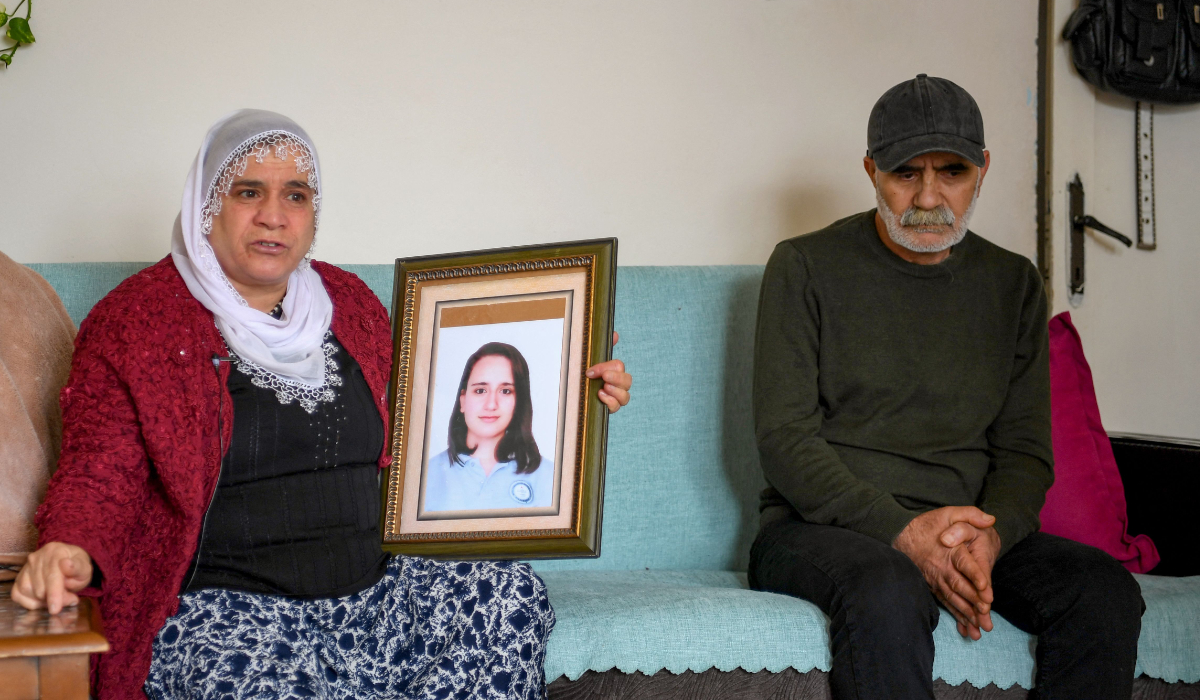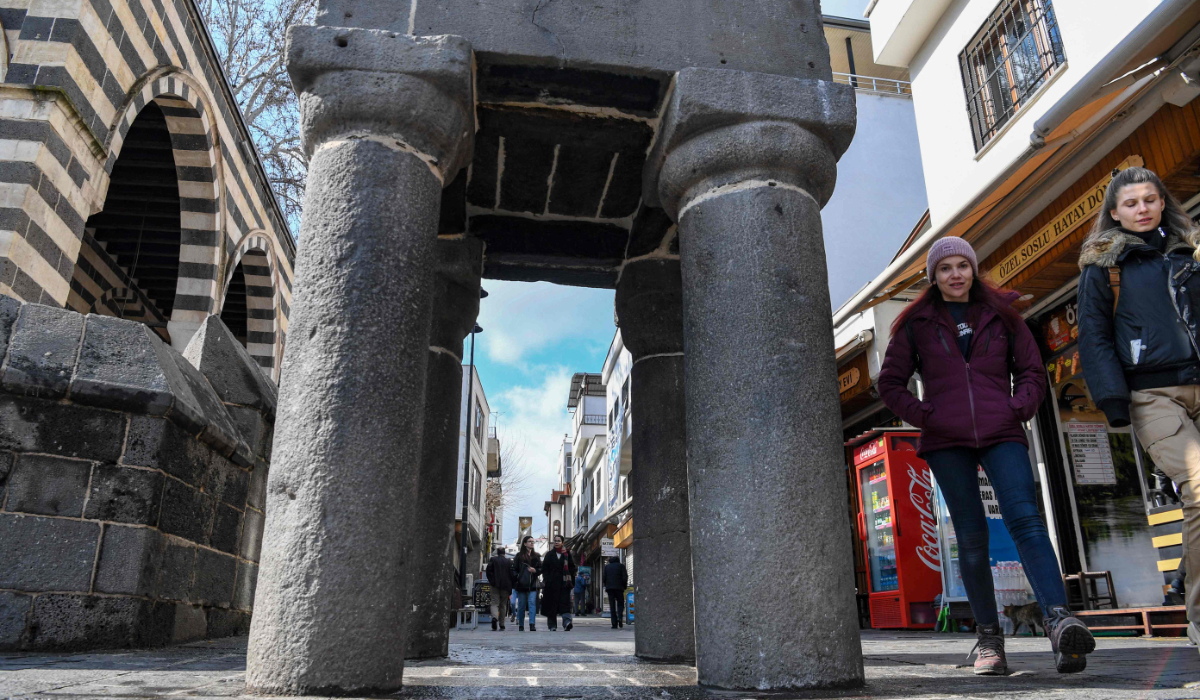ANKARA: The waters of the Eastern Mediterranean are heating up with Russia and the Assad regime starting a joint military exercise in the region on Tuesday.
The growing presence of Russia around Cyprus and Libya has prompted concerns about the emergence of a geostrategic fault line that divides Ankara and Moscow.
Russian warships and fighter jets from Khmeimim base in coastal Syria and Syrian-regime mine-sweepers reportedly participated in the joint maneuvers. Russia announced that the exercise would comprise some practices for fighting illegal armed groups and drones.
In the meantime, Turkey has an increasing military drone presence in the gas-rich eastern Mediterranean.
On Monday, Turkey’s Bayraktar TB2 drone landed at Gecitkale airport in northern Cyprus, and the local airport will be used for sending unmanned aerial vehicles to the region with an aim to escort drilling vessels off Cyprus.
Russian President Vladimir Putin is set to visit Turkey in January, where he will meet with his Turkish counterpart for discussing a joint plan about Libya. Putin and his Turkish counterpart, Recep Tayyip Erdogan, talked on the phone on Tuesday evening over developments in Libya.
“Russia supports any efforts and individual countries in terms of finding solutions to the (Libyan) crisis,” Kremlin spokesman, Dmitry Peskov, said on Tuesday.
Emre Ersen, an expert on Russia-Turkey relations from Istanbul’s Marmara University, thinks it is important for Russia to counter the rise of Western influence in such a strategic region as the East Mediterranean.
“In fact, one of the main outcomes of Russia’s direct military involvement in Syria in 2015 has been the significant rise of Russian political and economic influence in this region. However, Moscow has so far followed a very careful policy in the East Mediterranean, trying to stay away from siding with a particular country or bloc,” he told Arab News.
Russia denies any involvement in the civil war in Libya. But many reports indicate that the Russian private security organization the Wagner Group has been operating in the war-torn country for a couple of months and reportedly provided soldiers, advisory support and military expertise for Haftar’s troops to help them advance toward the capital.
Erdogan, in recent televised remarks, said: “Like they send the Wagner Group, we could send our own staff,” implying Turkey’s willingness to send troops to the country if requested by Fayez Al-Sarraj, especially after having the military security agreement ratified by both parties.
BACKGROUND
The growing presence of Russia around Cyprus and Libya has prompted concerns about the emergence of a geostrategic fault line that divides Ankara and Moscow.
However, although Russia looks closer to General Khalifa Haftar over the past couple of months, it still keeps its contact with Tripoli, with Russian energy companies signing many agreements with the latter.
Moscow is critical about the latest agreement signed between Turkey and the Tripoli-based Government of National Accord (GNA) on Nov. 27. However, Ersen thinks it is unlikely that this criticism over Libya may undermine the strategic rapprochement between the two countries.
“Moscow will prefer to continue playing the role of an active mediator between various actors — including Ankara — regarding the Libya issue,” he said. The two memoranda between Turkey and GNA on maritime borders and security cooperation provoked worries on the Russian side, with Russian Foreign Ministry spokeswoman Maria Zakharova saying that the deals could undermine preparations for an international peace meeting on Libya that is scheduled to be held in Berlin.
Turkish President Erdogan expects Russia to review its position on Haftar and withdraw the support it gives to Haftar’s troops.
Kirill Semenov, a nonresident expert of the Russian International Affairs Council, thinks however that the Russian-Syrian naval maneuvers are not worth the attention they are given.
“It would be strange if the fleets of Russia and Syria did not conduct joint military exercises since these fleets are based on the same naval bases. They just need to establish cooperation, both in the field of combating terrorism and to conduct exercises on joint demining of water areas near these naval bases,” he told Arab News.
According to Semenov, there is a local threat of clashes between Russian and Turkish PMCs (private military contractors) in Libya, although these incidents are unlikely to adversely affect bilateral relations.
“Both Moscow and Ankara will be able to try to resolve disputes through various transactions, as was the case in Syria, or even make deals in Libya in exchange for some concessions in Syria or vice versa,” he said.
In the meantime, US Senator Menendez’s Eastern Mediterranean Security and Energy Partnership Act has been included in the final appropriations package. Having the potential to further annoy Ankara, the act aims to deepen US security and energy relationships in the Eastern Mediterranean region, especially with Israel, Cyprus and Greece, while lifting arms restrictions on Cyprus.





























